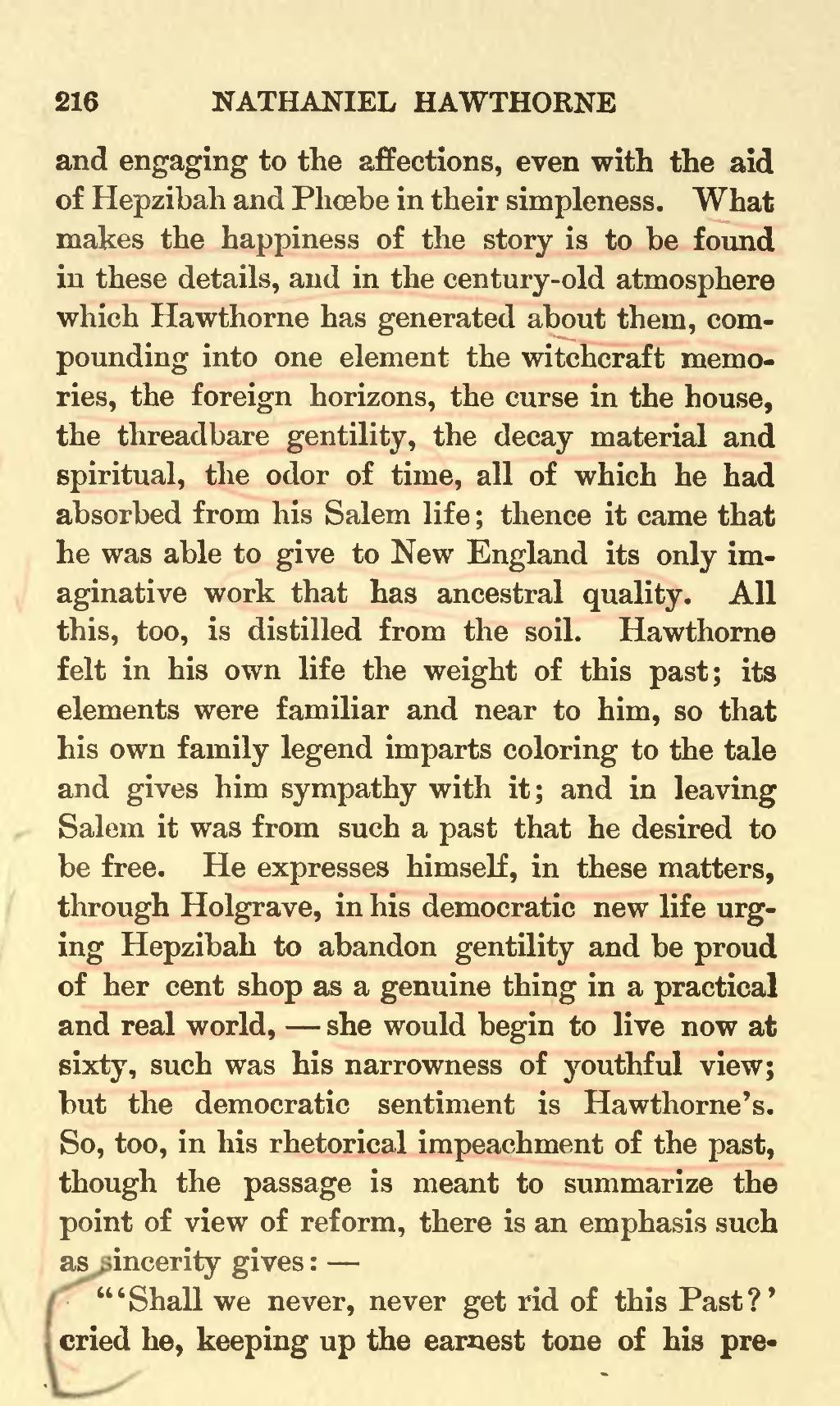and engaging to the affections, even with the aid of Hepzibah and Phoebe in their simpleness. What makes the happiness of the story is to be found in these details, and in the century-old atmosphere which Hawthorne has generated about them, compounding into one element the witchcraft memories, the foreign horizons, the curse in the house, the threadbare gentility, the decay material and spiritual, the odor of time, all of which he had absorbed from his Salem life; thence it came that he was able to give to New England its only imaginative work that has ancestral quality. All this, too, is distilled from the soil. Hawthorne felt in his own life the weight of this past; its elements were familiar and near to him, so that his own family legend imparts coloring to the tale and gives him sympathy with it; and in leaving Salem it was from such a past that he desired to be free. He expresses himself, in these matters, through Holgrave, in his democratic new life urging Hepzibah to abandon gentility and be proud of her cent shop as a genuine thing in a practical and real world,—she would begin to live now at sixty, such was his narrowness of youthful view; but the democratic sentiment is Hawthorne's. So, too, in his rhetorical impeachment of the past, though the passage is meant to summarize the point of view of reform, there is an emphasis such as sincerity gives:—
"'Shall we never, never get rid of this Past?' cried he, keeping up the earnest tone of his preceding
